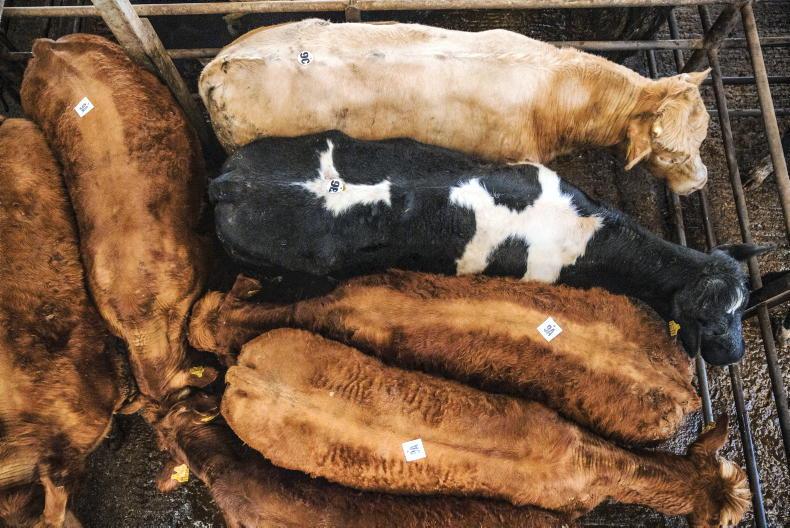The difficulty with industry warnings about trouble coming down the road is that people tend not to notice and are inclined to apply the principle of 'I cannot see and feel it right now, then I will not worry about it'.
The initial spread of COVID-19, first in Asia and then mainland Europe, especially Italy, is a good example.
The pandemic was in the news as a foreign story until it arrived in Ireland with a bang, as travel continued for several critical days to and from countries with the pandemic rampant.
Industry staffing
Of course, a problem with staffing in industry is not comparable with a global pandemic with catastrophic human health consequences.
However, the parallel is that a problem is brewing in the food processing sector, including the meat factories where, as we are in the relatively quiet season with numbers coming forward, it isn’t immediately visible.
Over the past week, the Irish Farmers Journal spoke with the trade associations that represent the meat factories in Britain, Northern Ireland and the Republic of Ireland.
EU workers returning home
In each area, there are multiple vacancies for staff in the factories that cannot be filled.
It is probably at its worst in the UK where workers from eastern European countries are no longer arriving in the same numbers as they were while the UK was in the EU.
The pattern for these workers is that they arrive from an eastern European country, work a few years and then return home.
There is no longer free movement of people from the EU to the UK
The problem in the UK at present is that with Brexit, the exodus has continued, speeded up by COVID-19, but the replacements aren’t arriving.
There is no longer free movement of people from the EU to the UK, with the English language requirement for entry being a major barrier.
A further complication in the UK over recent weeks has been the increase of COVID-19 cases and consequent need for contacts to isolate.
All of this has combined to make staff shortages a major issue for factories, and indeed farms, in Britain that relied on migrant labour for harvesting fruit.
Freedom of movement isn’t an issue in Ireland, but here too there are issues with factories being understaffed.
Irish factories have long relied on a significant element of non-EU labour and the global travel restrictions have made sourcing and retaining this labour more difficult.
Haulage
While factory staff may not be an immediate crisis, the issue of getting deliveries done is, especially in Britain. This is because there is a chronic shortage of lorry drivers, with the same issues that apply to migrant factory labour also applying to lorry drivers.
Simply, EU drivers who have left the UK are not being replaced from the EU, again with the English language requirement for entry being a major issue.
This is quiet season, but problems are inevitable in peak slaughter season
The knock-on effect of this is being felt in Northern Ireland as well, where hauliers have notified factories that they have to reduce the service they provide and there is no alternative.
Again, this is quiet season, but problems are inevitable in peak slaughter season if factories cannot get product moved from their stores to the market.
So far, the island of Ireland has avoided the multiple pictures of empty supermarket shelves that are regularly published from Britain.
Britain’s problem is added to by the reduction in EU hauliers being available for work in Britain.
Brexit means that an EU-registered lorry can no longer pick up and deliver in the UK in the way they could when the UK was in the single market. This has reduced haulage capacity, in addition to the scarcity of drivers.
UK border controls
For Irish haulage, the great concern lies ahead with the UK implementing border controls on goods of plant and animal origin.
Sanitary and phytosanitary certificates are due to come into effect on 1 October, with physical checks scheduled to start on 1 January 2022.
These have already been deferred and while Irish exporters and hauliers can hope for these to be further postponed - or better still an agreement is struck with the EU that avoids them - they are a real cloud hanging over Irish exports to Britain.
If full UK border controls are put in place in the way that they are for UK exports to the EU, port delays for hauliers are inevitable.
Career opportunities
It is clear that there are jobs in the meat industry and lorry driving and these vacancies are not being filled.
Historically, working in a meat factory was considered where you finished up if you didn’t successfully pursue education or learn a trade, the career of last resort.
Some may find it a challenging working environment, but like so many factory processes, it has been transformed by technology, with much of the physical labour replaced by machines.
It is no longer poorly paid either, with wages now in the region of £25,000 in NI and up to €30,000 south of the border.
There are also plenty of career development opportunities, so the industry has something to sell, as Nick Allen of the British Meat Processors Association highlighted when he spoke to the Irish Farmers Journal.
Listen to what he and Conall Donnelly of the Northern Ireland Meat Exporters Association had to say below.
Brexit and COVID-19 have spotlighted what has been a long-standing problem for the meat industry with attracting staff. It is similar in the road haulage business with drivers.
Both sectors have been just about managing for a long time and perhaps the problem coming to a head will stimulate the creativity in the industry to develop a solution.
Until this happens, there remains a risk of processing capacity becoming a bottleneck for farmers and consumers alike.








SHARING OPTIONS